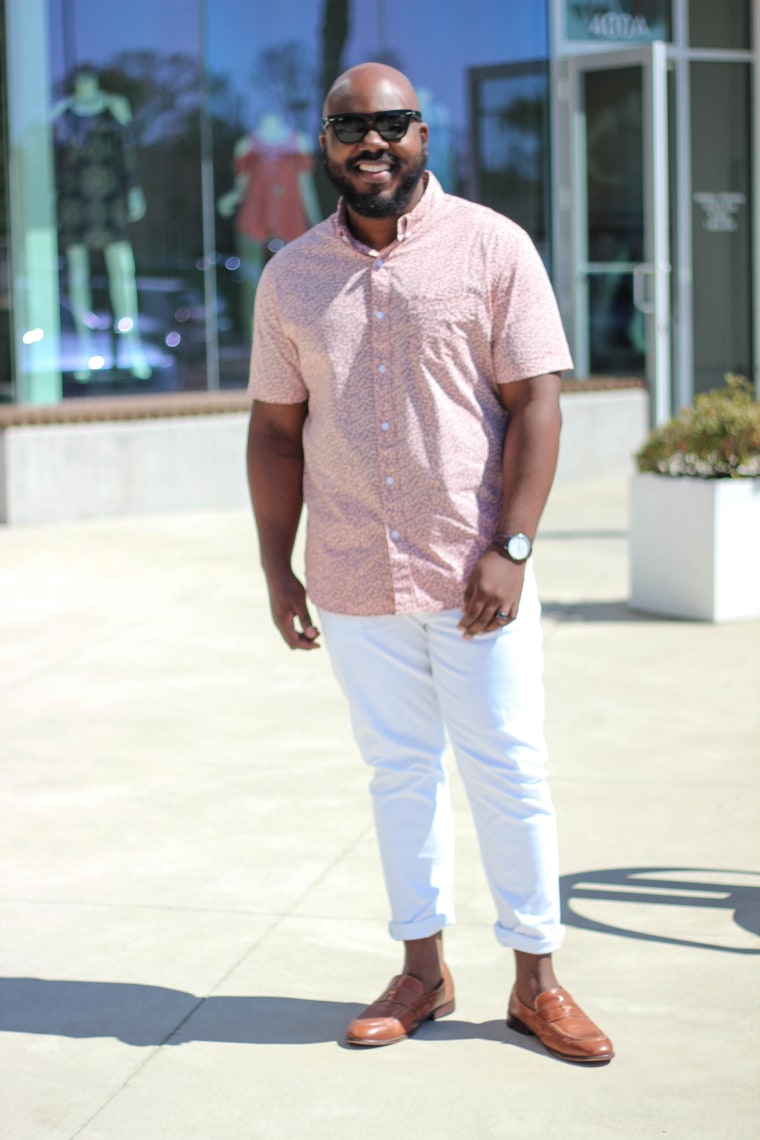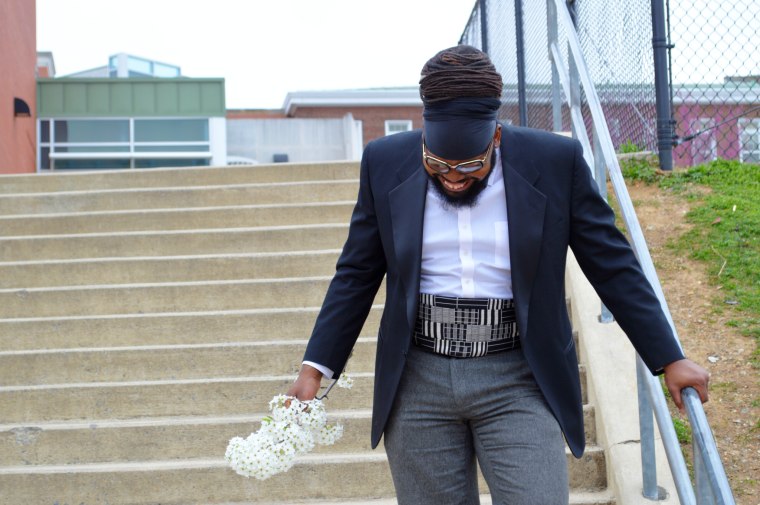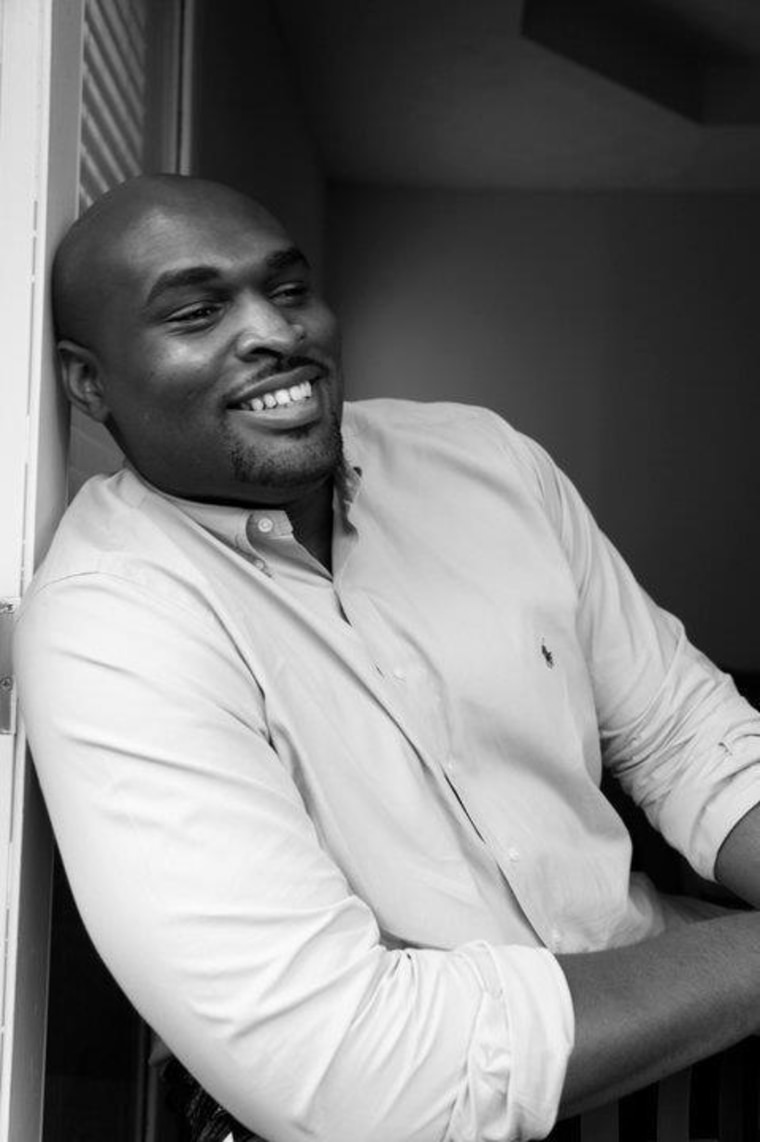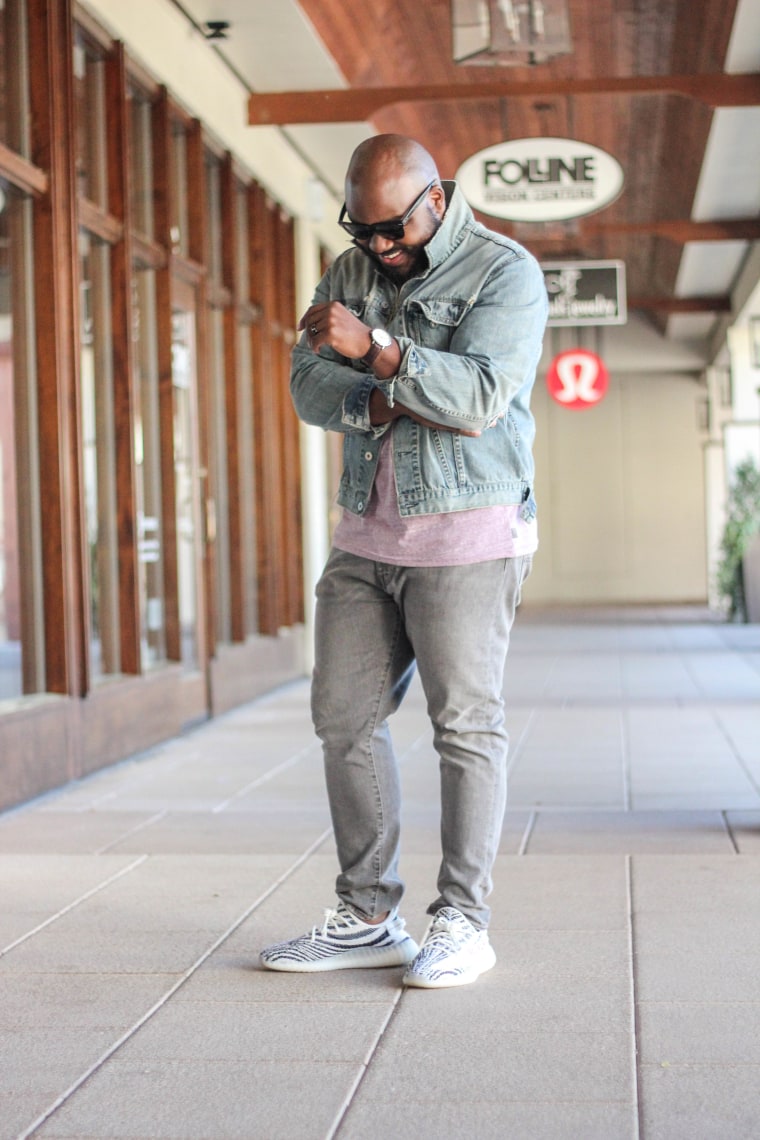Black men are carving a place for themselves in the body positivity crusade — a movement designed to encourage self-love for those historically considered physically unhealthy, out of shape and unattractive.
They want you to know, big is back.
William Brooks, Kelvin Davis, and Rah Mosley are three of the growing number of men of color working to change the mainstream definitions of what it means to be attractive, sexy or masculine.
“I love seeing how more and more people are giving a middle finger to the societal standards of beauty,” Davis 29, told NBC News.

He has become one of the more well-known body positivity advocates in the past few years. Through his website/blog, Notoriously Dapper, he shares body positive tips to help others find confidence.
“We all were made in various sizes and shapes for a reason. It's what makes us unique, beautiful and strong,” he added. “Too many people are being fed nonsense about how a body should look. The media's perception of beauty is unrealistic, but people aren’t buying into it anymore.”
Brooks, 34, is a body positive advocate because he believes the standard of beauty in the African-American community is impossible to obtain.
Related: Body-shamed Olympic swimmer Robel Kiros Habte of Ethiopia gets waves of support
“If we expect for people to ever be able to love themselves we have to begin to affirm who they are even when who they are is different from typical beauty standards,” he told NBC News. “I want men to love who they are, right where they are. And if they would like to make some changes within themselves then do so, but to walk around every day hating the better part of yourself is poisonous!”

He also created a blog called Bigguyflyy. Its purpose, he said, is to encourage men to love their bodies and push against the stereotype that all Black men have to be chiseled with six pack abs.
Davis, Brooks, and even Mosley have all had stereotypes forced upon them most of their lives. For Mosley, 39, he had to deal with the assumptions made about him because of his height.
“Being that I’m 6’10” I’ve stood apart from most of my peers my whole life,” he said, adding that growing up he developed a distaste for sports because of the expectations forced upon him.
He created rahmosley.com to be a resource for other extremely tall men of color.
“Hopefully, my role in the body positivity movement is one that reaches the young man in high school who’s extremely tall, but has no interest in sports. All because you are tall you do not have to fall into the stereotypes placed upon other tall men,” he said. “You can be a little awkward, goofy, and clumsy, and still be confident.”
Through their digital dispatches, they provide wardrobe tips, suggest the best brands for the average man and even share tips for healthy living. Mosley has openly posted about being diagnosed as diabetic and the setbacks of working out with a back injury.

Like Mosley, Davis was motivated by experience. Following an embarrassing shopping experience, he felt moved to create his blog. As a child, art and fashion were his two areas of interest. His blog also led him to write a book, “Notoriously Dapper: How to be a Modern Gentleman with Manners, Style and Body Confidence.”
In addition, he has been featured in a few ad campaigns, including an American Eagle Outfitters underwear ad.
American Eagle isn’t the only brand taking notice. In May, Puma announced the launch of a plus size line which also includes plus size men. And while there are milestones being made to ensure that men of color are not left out, the work of body positivity has not always been pleasant.
Brooks knows all too well. Someone attempted to call him out on social media for wearing a floral sport coat. “No Man Should Ever Wear Flowers,” the guy proclaimed. Brooks was not terribly bothered by the statement – he was actually more upset that the guy used a photo of him with his daughter rather than one of him alone.
“If you've been told all of your life that you are unattractive because of your body type, and that certain limitations should always be on you, oftentimes you can unconsciously begin to formulate ideas and opinions that support that ideology," he said, adding that stereotypes need to be crushed. "We can't cry, show weakness, be vulnerable, or God forbid wear flowers. That's why it is so important that we begin to change the conversation regarding men of size.”
Lee Jones, a photographer based in Atlanta, is doing his part. He is currently working on a photography project designed to show African American men expressing joy. He sees his project as part of the body positivity movement because it humanizes the regular, every day, black man.
“I often think about Paul Laurence Dunbar’s poem, ‘We Wear the Mask.’ Black men must wear a mask each day – some self-imposed while other masks are forced on us,” he said. “We don’t always get to lay our masks down and allow others to see our true joyful and happy selves. It’s unrealistic, or even inhumane, to expect black men to always be ‘hard’ or ‘angry’ or ‘menacing’ 24-7 without laying down the mask and enjoying themselves. It is healthy to see to African American men being their true selves.”

